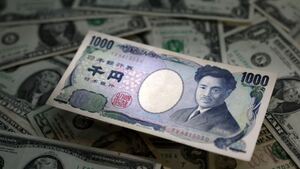"There have been times when ships couldn't be fully loaded on some routes, and when we reduced the frequency of container services from East Asia to the US," Igarashi, who took his post in March, told Reuters in an interview.
"We're adjusting our fleet capacity according to cargo volumes."
One of Japan's major shipping companies, Kawasaki Kisen, has factored in a $200 million impact from US tariffs for the financial year through March 2026, citing a hit to the car carrier business and lower container volumes and freight rates.
Igarashi said that the container ship business would be especially affected by the outcome of US-China tariff negotiations, which the company was closely watching.
US President Donald Trump has threatened higher tariffs on a range of trading partners unless they agree trade deals before an August 1 deadline. Depending on the tariff rates that various countries ultimately face and what they do to trade flows, there could be some positive impact if shipping distances lengthen, Igarashi said.
To adjust to tariff-related demand at the operational level, Kawasaki Kisen could redirect vessels from US routes to Europe, the Middle East, Australia and Africa, he said.
--Reuters--













